Sleep isn’t just about recharging—it’s a cornerstone of mental and physical health. Yet, millions of people struggle with falling asleep, staying asleep, or waking up feeling unrested. Stress, anxiety, and neurotransmitter imbalances often play a bigger role in sleep disturbances than we realize, and traditional sleep aids rarely address these underlying issues.
Lithium, a naturally occurring trace mineral, has long been used in psychiatric medicine, but emerging research suggests that in small doses, it may help regulate stress hormones, stabilize mood, and promote deeper, more restorative sleep.
Unlike conventional sedatives, which can leave people feeling groggy or dependent, low-dose lithium works at a cellular level to support the brain’s natural sleep mechanisms.
By exploring how lithium influences sleep and emotional well-being, we may uncover a simple yet powerful tool for those seeking better rest—one that aligns with the body’s natural rhythms rather than forcing it into sedation.
The Essential Role of Sleep in Mental Health
Sleep and mental health share a complex, two-way relationship.
Poor sleep can contribute to conditions like depression and anxiety, while mood disorders often make it harder to get restorative rest. Disrupted sleep patterns are strongly linked to heightened emotional distress and cognitive impairments.
Chronic sleep deprivation can lead to significant impairments in cognitive functions such as memory, attention, and decision-making. A review in Neurosciences highlights that insufficient sleep adversely affects these cognitive domains, underscoring the critical importance of adequate rest for maintaining mental performance.
The key question is: how can we improve sleep in a way that also supports mental stability?
How Lithium Supports Sleep Quality
When sleep feels out of reach, lithium may offer a helping hand. This natural mineral helps regulate key brain chemicals and hormones that shape our sleep-wake cycle, making it easier to fall asleep and stay asleep through the night. While lithium is well-known for its role in mental health, its benefits for sleep are just as valuable.
Let’s take a look at how it works.
1. Lithium and Melatonin Regulation
Melatonin is your body’s built-in sleep signal—it tells your brain when it’s time to wind down for the night. Lithium has been shown to support melatonin function by enhancing serotonin activity, a crucial step in melatonin production.
Since serotonin plays a central role in sleep regulation, lithium’s ability to keep serotonin levels steady may help create a more predictable sleep schedule and improve overall sleep quality.
2. Balanced Stress Response for Better Sleep
Chronic stress can be one of the biggest barriers to restful sleep. When the body perceives stress, the hypothalamic-pituitary-adrenal (HPA) axis signals the release of cortisol, the primary stress hormone.
In a balanced system, cortisol follows a natural rhythm—peaking in the morning to promote wakefulness and gradually declining in the evening to prepare the body for rest.
However, in individuals experiencing chronic stress, anxiety, or mood imbalances, cortisol levels may remain elevated at night, leading to restlessness, difficulty falling asleep, and frequent nighttime awakenings.
Low-dose lithium has been shown to help regulate the HPA axis and support a more stable stress response. Research suggests that lithium may reduce excessive cortisol release by enhancing the brain’s ability to manage stress and promoting neuroprotection in key regions involved in emotional regulation. By preventing the overstimulation of stress pathways, lithium helps create the conditions necessary for deeper, more restorative sleep.
3. Enhancing Deep, Restorative Sleep
The deepest phase of sleep, known as slow-wave sleep (SWS), is when your brain clears out waste, processes memories, and restores emotional balance. Without enough deep sleep, you might wake up feeling groggy and emotionally drained.
Lithium has been shown to increase the stability of slow-wave sleep, making it easier for your body to get the rest it needs. By supporting the brain’s ability to enter deep sleep more consistently, lithium helps you wake up feeling more refreshed and mentally sharp.
By working with your body’s natural sleep processes—supporting melatonin, easing stress hormones, and deepening restorative sleep—lithium provides a simple yet powerful way to improve sleep quality and overall well-being.
Lithium’s Influence on Emotional Resilience
Beyond sleep, lithium is widely recognized for its ability to enhance emotional resilience by modulating key neurotransmitters.
Increasing GABA for a Calming Effect
Gamma-aminobutyric acid (GABA) is the brain’s primary inhibitory neurotransmitter, helping to calm neural activity and reduce anxiety. It’s believed that lithium increases GABA levels, which may explain its ability to promote relaxation and reduce stress-induced insomnia.
Stabilizing Mood by Balancing Dopamine and Serotonin
Lithium helps prevent extreme mood fluctuations by balancing dopamine and serotonin activity. This stabilization reduces nighttime restlessness and intrusive thoughts, common issues for people with anxiety or depression.
Additionally, lithium has been found to reduce oxidative stress and inflammation in the brain—two factors closely linked to depression, anxiety, and cognitive decline.
Practical Ways to Use Lithium for Better Sleep
If you’re considering lithium as a natural sleep aid, low-dose supplementation may be a safe and effective option.
Low-Dose Lithium Supplementation
Studies suggest that microdoses (1-5 mg per day) of lithium orotate can support neuroprotection, stress reduction, and sleep enhancement without the risks associated with pharmaceutical doses.
Timing also matters—taking lithium in the evening aligns with the body’s natural melatonin production, optimizing its sleep-enhancing effects. Consulting a healthcare provider ensures safe use, especially for those with existing medical conditions.
Nutritional Support for Lithium Absorption
Certain foods can help maintain your body’s lithium levels, too.
Incorporating items like leafy greens (such as spinach and kale), nuts and seeds (like walnuts and almonds), whole grains (including quinoa and oats), and mineral-rich spring water into your diet can be beneficial. These foods naturally contain lithium, and staying well-hydrated supports your body’s balance.
By enjoying these nutritious options, you’re not only nourishing your body but also supporting your mental well-being.
Combining Lithium with a Holistic Sleep Strategy
While lithium can significantly improve sleep, it works best when combined with other sleep-promoting habits.
- Mindfulness and Relaxation Techniques – Meditation, deep breathing, and yoga have been shown to reduce stress and enhance sleep quality.
- Reducing Blue Light Exposure – Avoiding screens before bedtime can improve melatonin production and sleep efficiency.
- Magnesium-Rich Foods – Magnesium helps relax muscles and regulate neurotransmitters, complementing lithium’s calming effects.
A systematic review and meta-analysis of randomized controlled trials found that mindfulness meditation interventions significantly improved sleep quality compared to nonspecific active controls, with moderate strength of evidence. These findings suggest that mindfulness meditation may be effective in treating some aspects of sleep disturbance.
Restoring Rest and Resilience
Lithium’s ability to influence both sleep and mental health makes it a powerful, natural tool in functional medicine. By addressing the root causes of poor sleep—such as neurotransmitter imbalances and stress hormone dysregulation—lithium provides a unique, holistic approach to restoring rest and resilience.
When combined with healthy lifestyle habits, lithium can be a game-changer for those struggling with sleepless nights and emotional instability.
If you’re looking for a natural way to enhance your sleep and well-being, this overlooked trace mineral may hold the key to brighter mornings and more peaceful nights.


